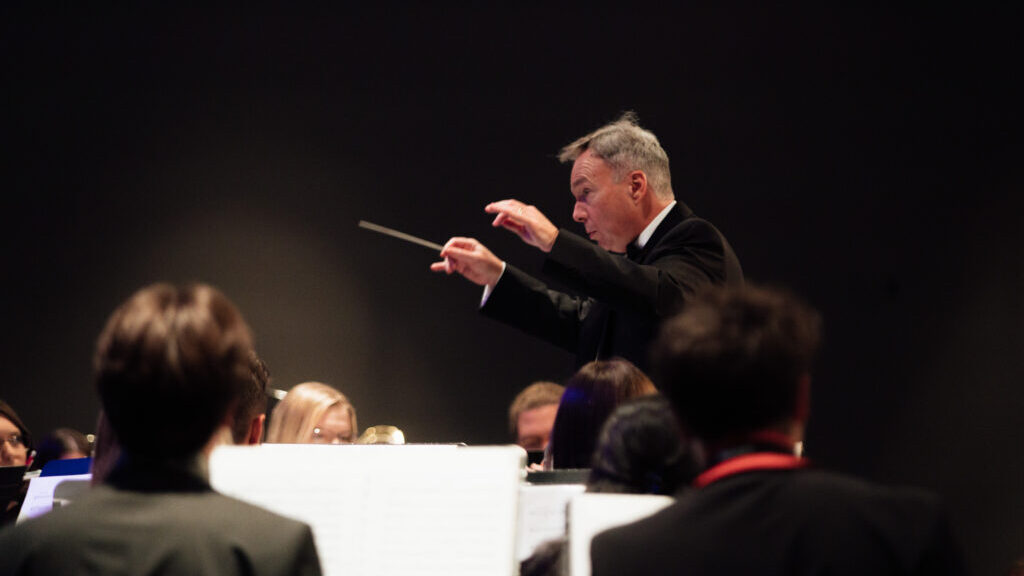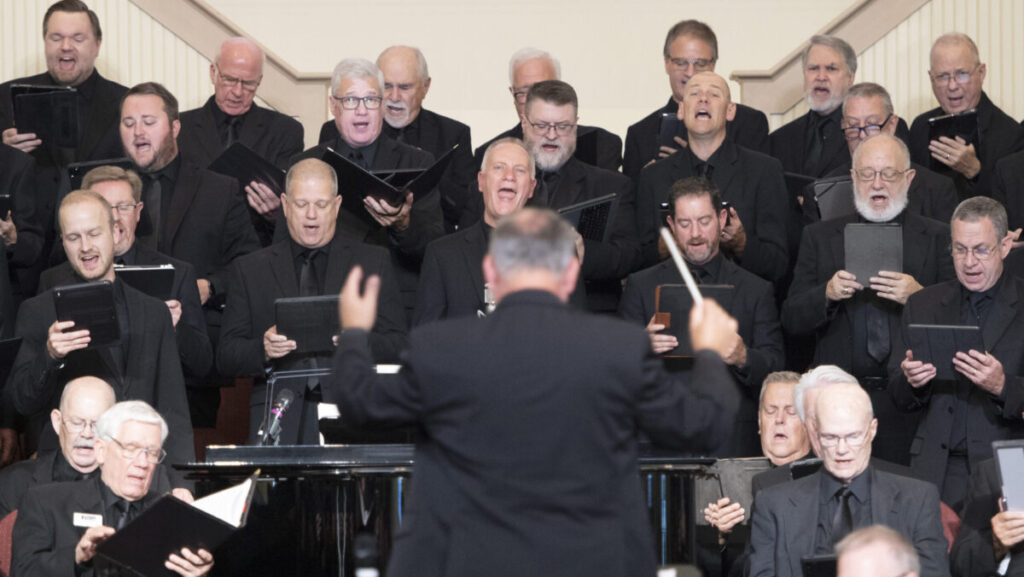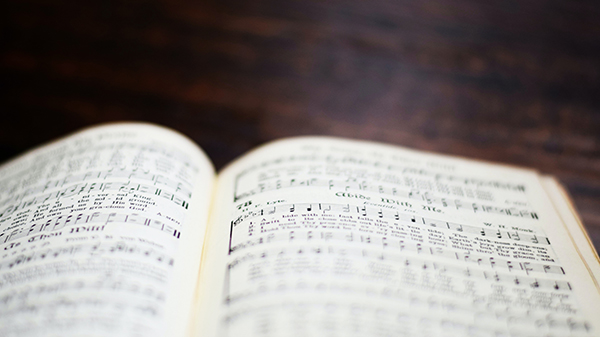In the world of band music, recognition by J.W. Pepper’s Editor’s Choice Awards is a mark of excellence, and University of Mobile music professor Steve Dunn has achieved this honor for the third consecutive year. His latest composition, “Steel Driving Man,” based on the legendary tale of John Henry, was premiered by high school students in the University of Mobile Honor Band and now is available to bands nationwide.
In this Q&A, Dunn shares insights into his award-winning work, the significance of this recognition for both him and the University of Mobile, and the enriching experiences offered by the Alabama School of the Arts music program and the UM Honor Band.
Q: Congratulations on your recent “Editor’s Choice Award!” Can you tell us more about the piece that earned you this recognition?

Steve Dunn: Thank you! The piece is called “Steel Driving Man,” which is based on the American folklore story of John Henry. It’s being released by Carl Fischer Music and has been chosen by J.W. Pepper as an Editor’s Choice selection. This is particularly exciting because it marks the third consecutive year I’ve received this honor. “Steel Driving Man” was premiered by high school students in the University of Mobile Honor Band, and now band directors across the nation will be able to purchase and play this piece with their own bands.
Story
Q: What makes “Steel Driving Man” special, and why do you think it received the Editor’s Choice award?
Steve Dunn: For a number of years, I wrote pieces in a series I called the “American Legends Series” — which included the titles “Johnny Appleseed,” “Paul Bunyan,” “Casey Jones,” “Molly Pitcher” and “John Henry.” In my research for each piece, I discovered that all these legends, except for Paul Bunyan, are actually based on true stories — John Henry included. This story of a powerful former slave working as part of a railroad crew is a bit fuzzy in its roots and is claimed by Virginia, West Virginia and Leeds, Alabama.
“Steel Driving Man” dramatizes the legendary contest between John Henry and a steam-powered steel-driving machine. The contest supposedly lasted more than 24 hours and was won by John Henry but cost him his life through exhaustion. The piece incorporates a “work crew” song/chant to add authenticity and depth to the story. I believe it stands out due to its engaging narrative and the way it challenges and excites young musicians.
While I can’t say for certain why it was chosen as an Editor’s Choice, the feedback from my editor at Carl Fischer Music has been overwhelmingly positive. They mentioned that if people thought my 2023 piece “Pelican Dance” was fun, “Steel Driving Man” would be even more impressive and enjoyable. Both pieces are available at jwpepper.com.
Q: What does it mean to you and to the University of Mobile to be recognized three years in a row as an Editor’s Choice recipient?
Steve Dunn: On a personal level, it’s incredibly encouraging and reassuring. It tells me that my work is resonating within the band community and is seen as valuable. Despite having written close to 1,500 pieces of music and publishing around 300, only a dozen are specifically for band, so I still feel like a “rookie” in that league.
I’ve had directors tell me they start their search for new music with the Editor’s Choice lists from J.W. Pepper. Consistently being on this list builds a reputation of quality and can lead to more attention, both to my work as a composer and to the University of Mobile. These awards help raise the profile of our music program and the UM Honor Band, which is mentioned on each award-winning piece. It also helps us attract attention from band directors and students who might be interested in learning more about our programs.
A side note: I visit many schools during summer band camp and football season. I was at a school in north central Alabama last fall where I had never been and knew no one. When I got there, the director told me they had looked up my name, found these pieces on J.W. Pepper, loved them and therefore were very interested in meeting me and learning more about UM. That’s my biggest goal.
Experience
Q: Can you share more about the Alabama School of the Arts music program and the UM Honor Band experience?
Steve Dunn: The Alabama School of the Arts at the University of Mobile is dedicated to providing high-quality education in music and the arts. Our music program is robust, offering students numerous opportunities to perform, compose and develop their skills. The UM Honor Band is a key part of this, providing high school students with the chance to collaborate and perform challenging pieces in a supportive environment. Each year, I write a new composition specifically for the UM Honor Band to premiere, which not only gives students a unique experience but also showcases their talents on a broader stage.
The 16th annual University of Mobile Honor Band for students in grades 9–12 will be held Feb. 6–8, 2025. Admission to the UM Honor Band is based on student application and band director recommendation, not by audition. Information about the UM Honor Band is on our website at umobile.edu/honorband.
Q: What do you love about composing band music?
Steve Dunn: I’ve been writing music since I was a child, and creating music has always been a significant part of my life, whether in my decades of involvement in church music, for publishers, commercials, recording and for the last dozen years in academia. Composing for band presents unique challenges and opportunities due to its distinct instrumentation and possibilities. I want to learn how others before me have written for this medium well, and how I can then build on that and do something that is a bit unique with it. Writing for the concert band at UM has been particularly rewarding because it allows me to push creative boundaries and continually learn and grow as a composer.
For more information or to learn about the Alabama School of the Arts at the University of Mobile, visit umobile.edu/asota.
EDITOR’S NOTE — This story was written by Kathy Dean and originally published by the University of Mobile.






Share with others: